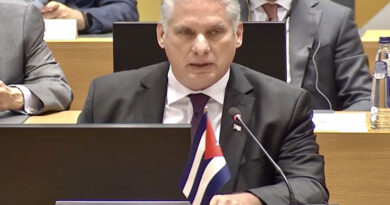[:es]Cuba Aims to Increase Farming Potential[:]
[:es]

The most recent norms include Decree-Law No. 358/2018 and its Regulation, Decree No. 350/2018, published in the Gaceta Oficial. These norms rule over the policy of granting state idle lands through usufruct.
These documents also include amendments approved to solve issues that limit production.
The said norms are a follow-up to the enactment of Decree-Laws 259 (2008) and 300 (2012), in compliance with the measures approved to revive the farming sector and foster the incorporation, permanence and stability of the workforce and the family’s final settlement.
According to Agriculture Ministry’s legal advisor, Orlando Diaz, the main changes include the following: authorizing individuals who are granted or were granted a plot of land for farming, sugarcane planting and forestry.
In accordance with the document, the maximum area to be granted in usufruct to those who apply for a plot of land for the first time – for the farming and forest production – has been increased from 13.42 to 26.84 hectares.
One of the most novel features of this norm includes the authorization of up to three percent of the area granted for farming and forest production for the construction of facilities.
RESULTS SO FAR
Since its implementation, the process of granting idle lands in usufruct has resulted in the productive increase of items such as root vegetables, vegetables, corn, beans, rice, milk and meat, among others. However, these results are far from meeting the needs.
According to Soil and Land Control Director Eddy Soca, 289,474 applications have been made. Of these, 244,851 have been approved – 241,604 to individuals and 3,247 to legal cooperatives and other forms of agricultural companies.
Based on the applications made, 2,102,454 hectares have been granted – 12 percent of these to women.
This constant process of granting plots of land in usufruct follows two principles: these plots of land are a non-transferable property of the State, and they should be exploited, avoiding the misuse of the land and the loss of its productivity.
Soca emphasized that in order to use such plots, it’s necessary to keep in mind the Cuban soils’ productive characteristics; that is, the most appropriate crops for such soils, because only 23.5 percent of the farming areas have favorable productive conditions.
[:]



